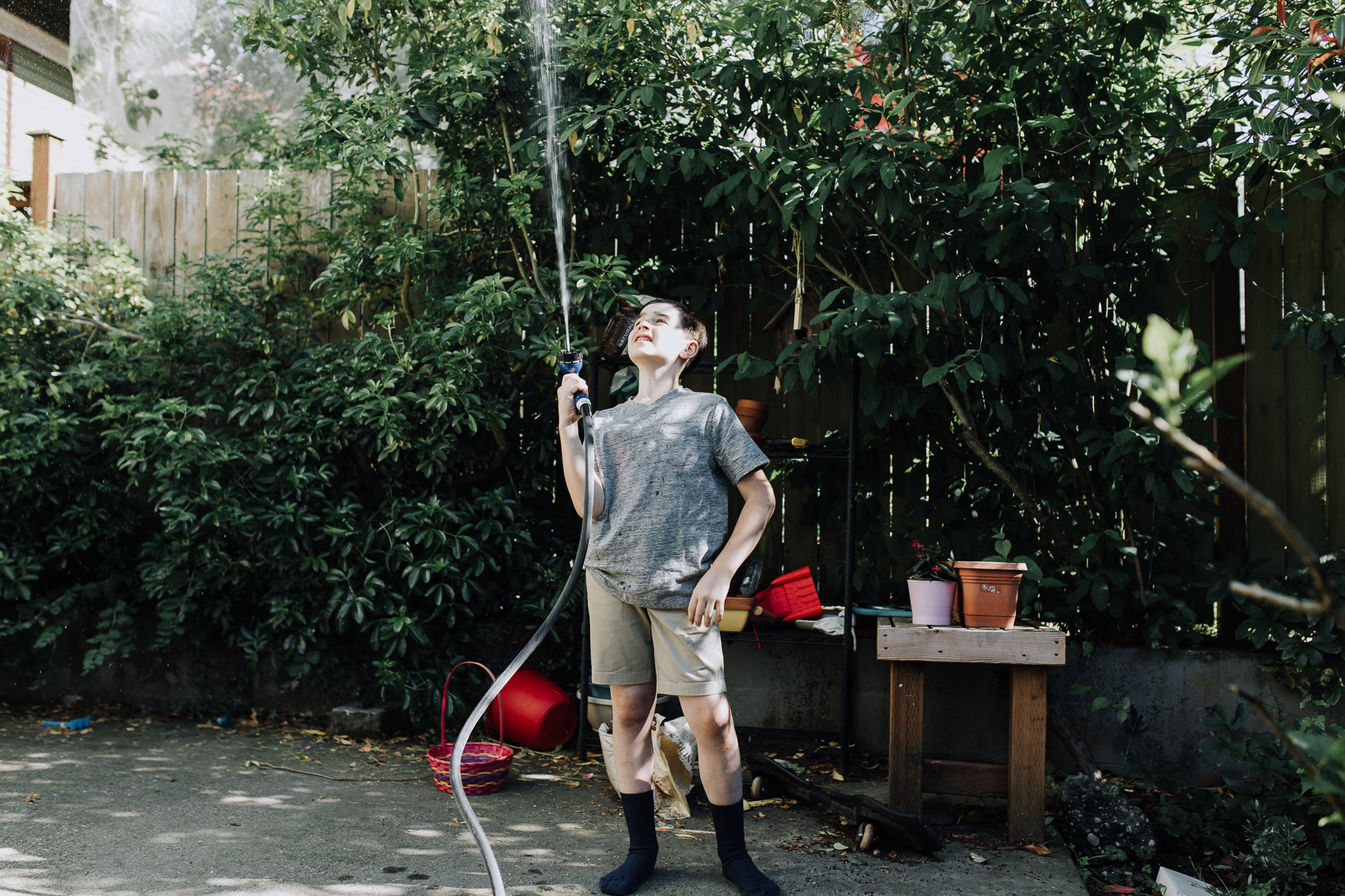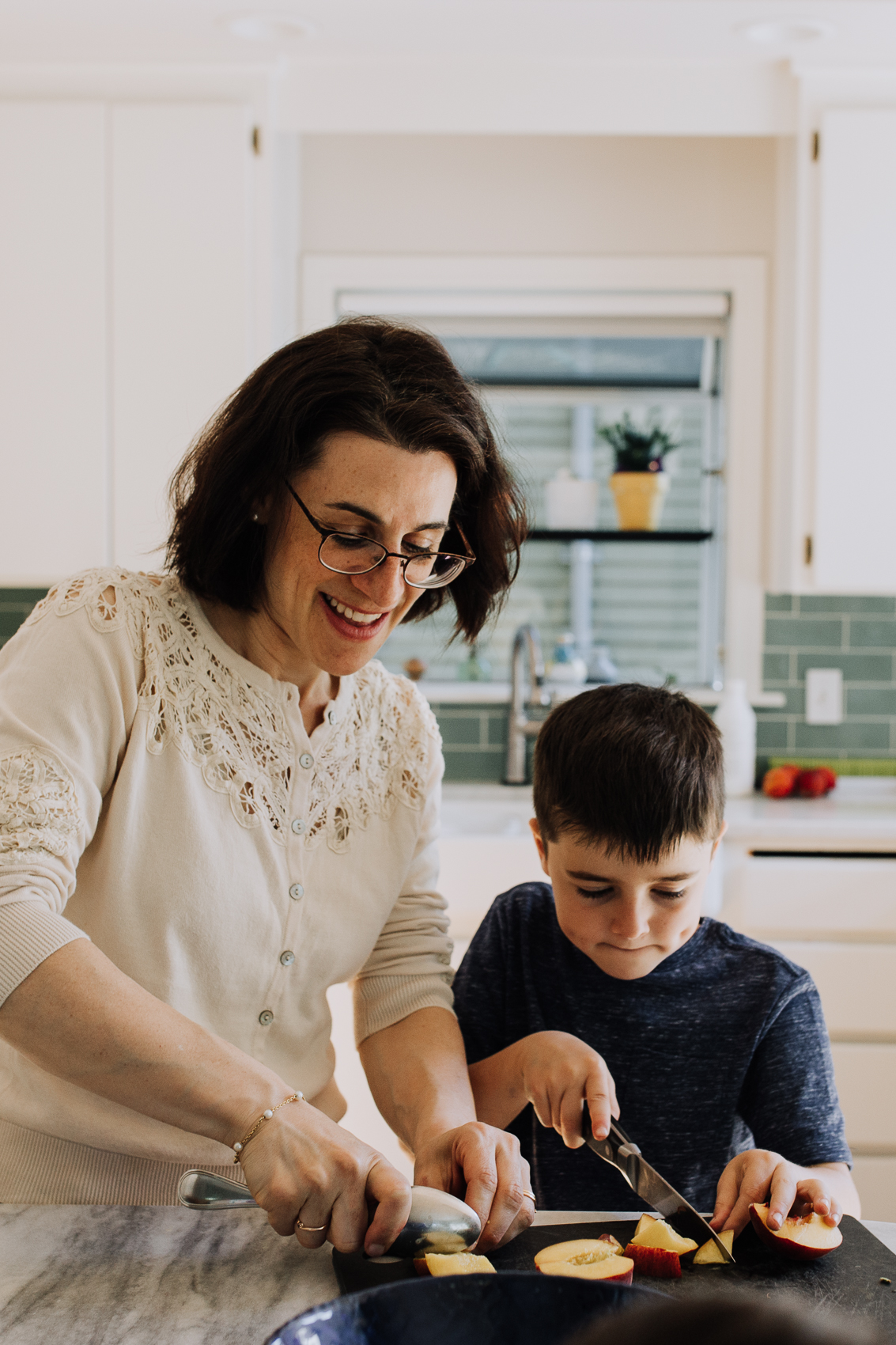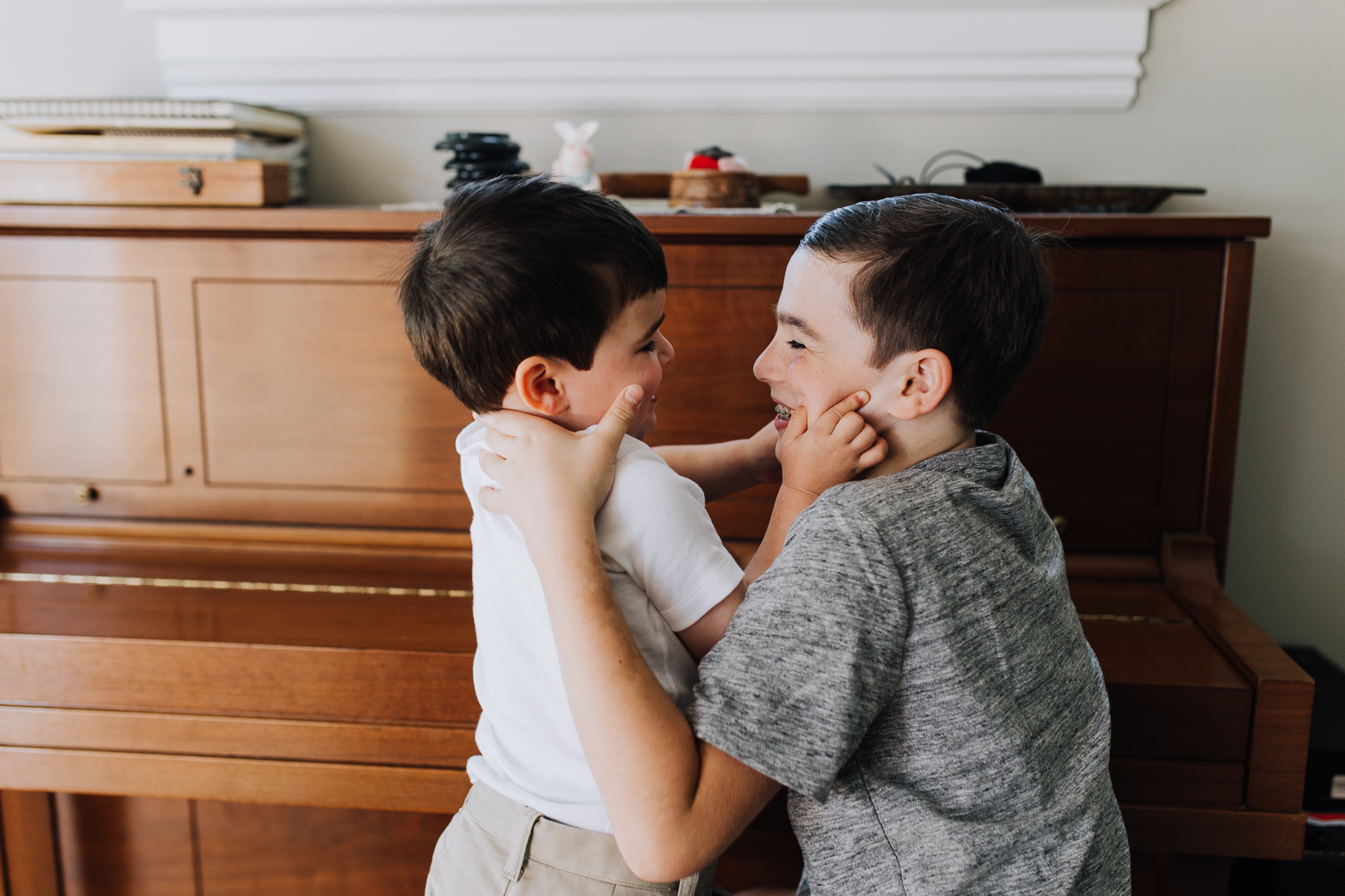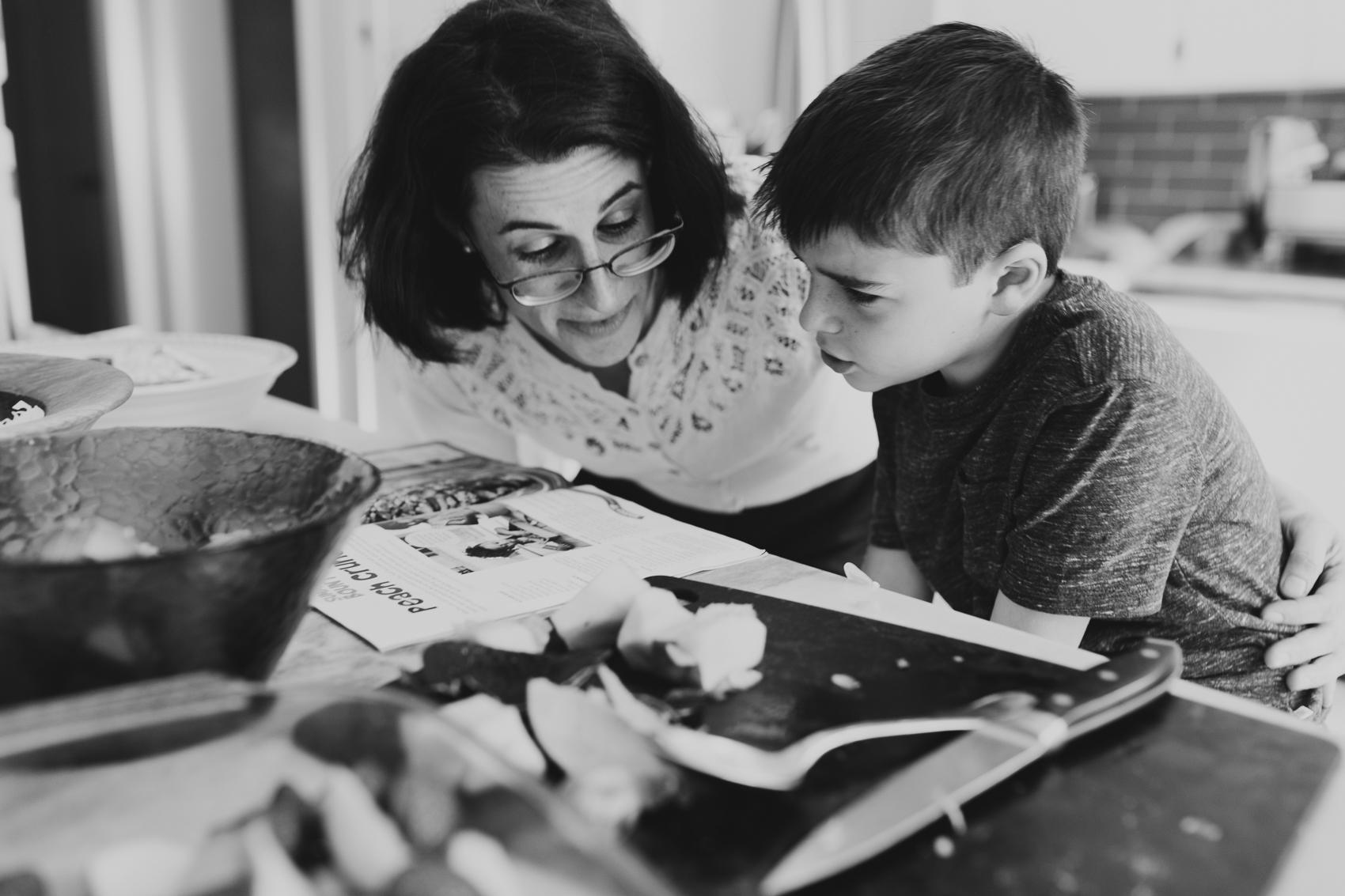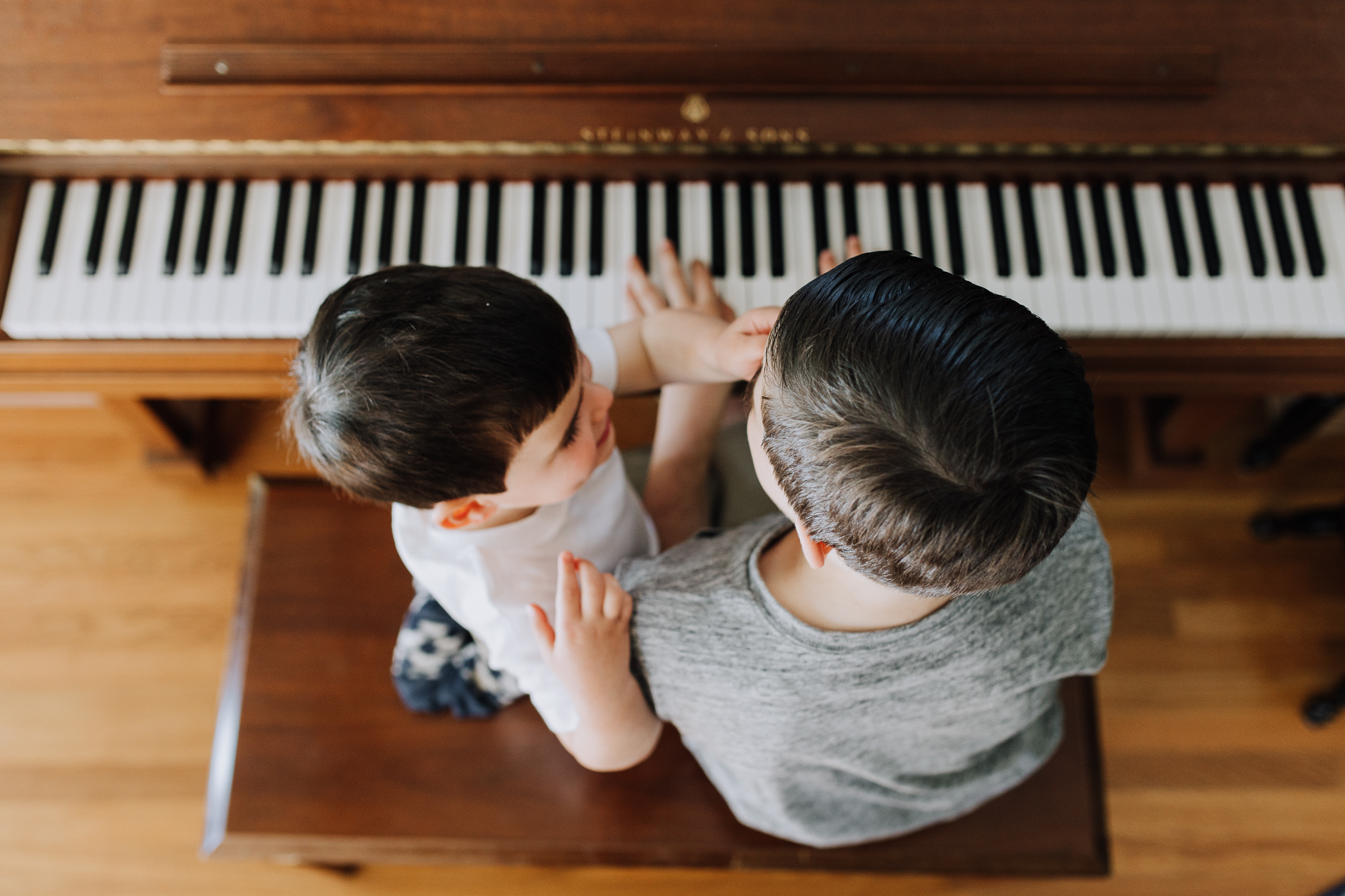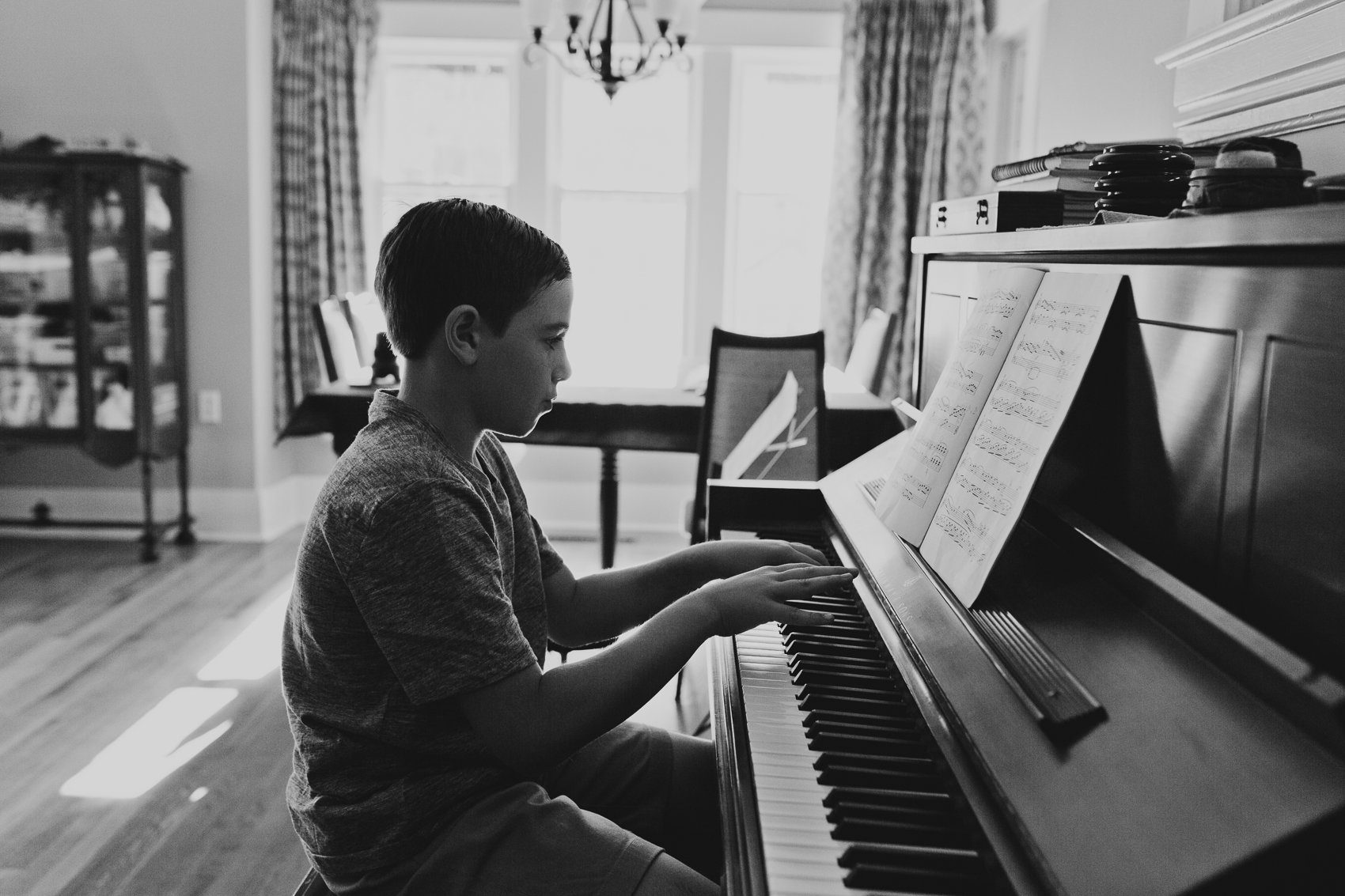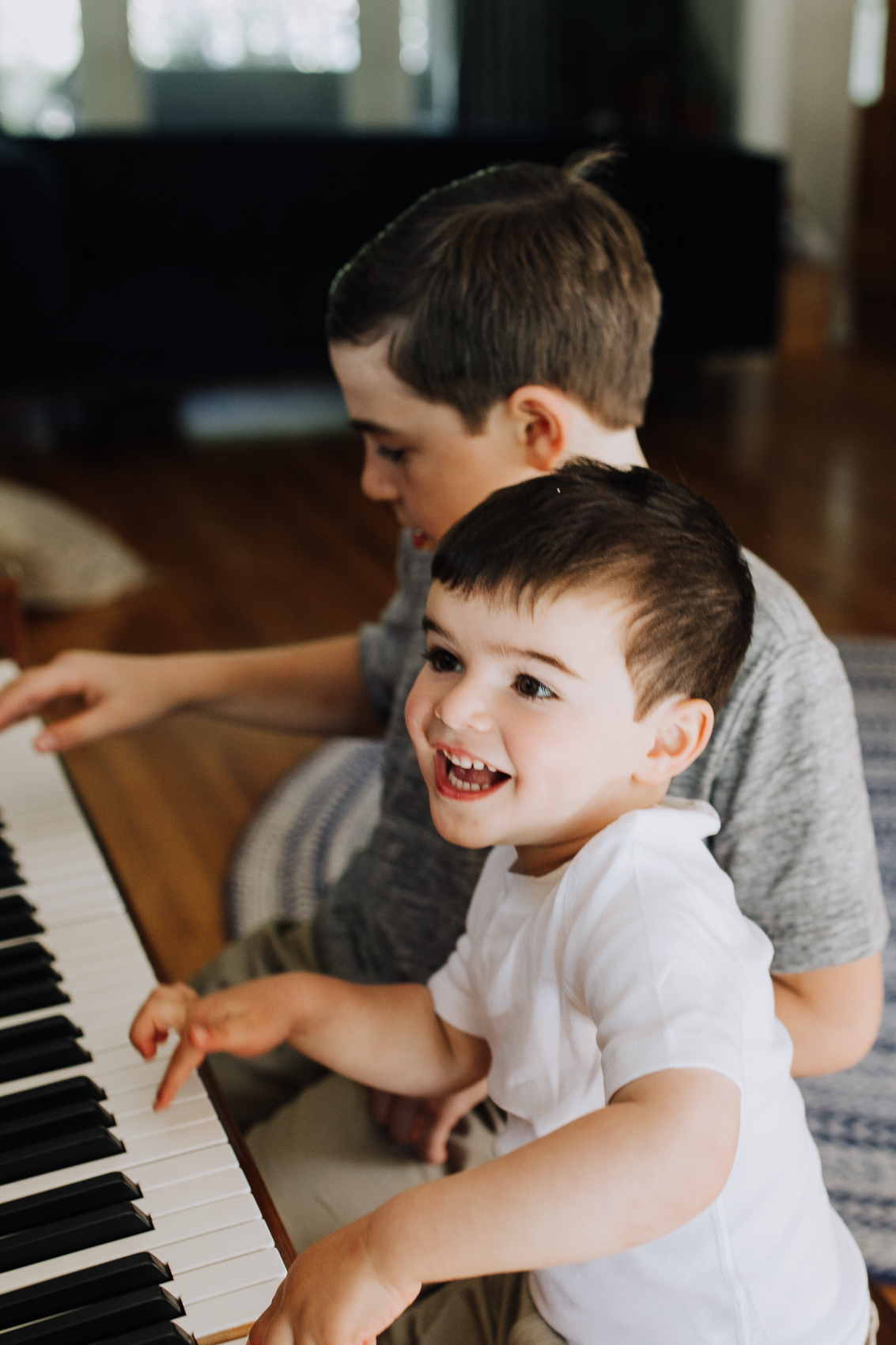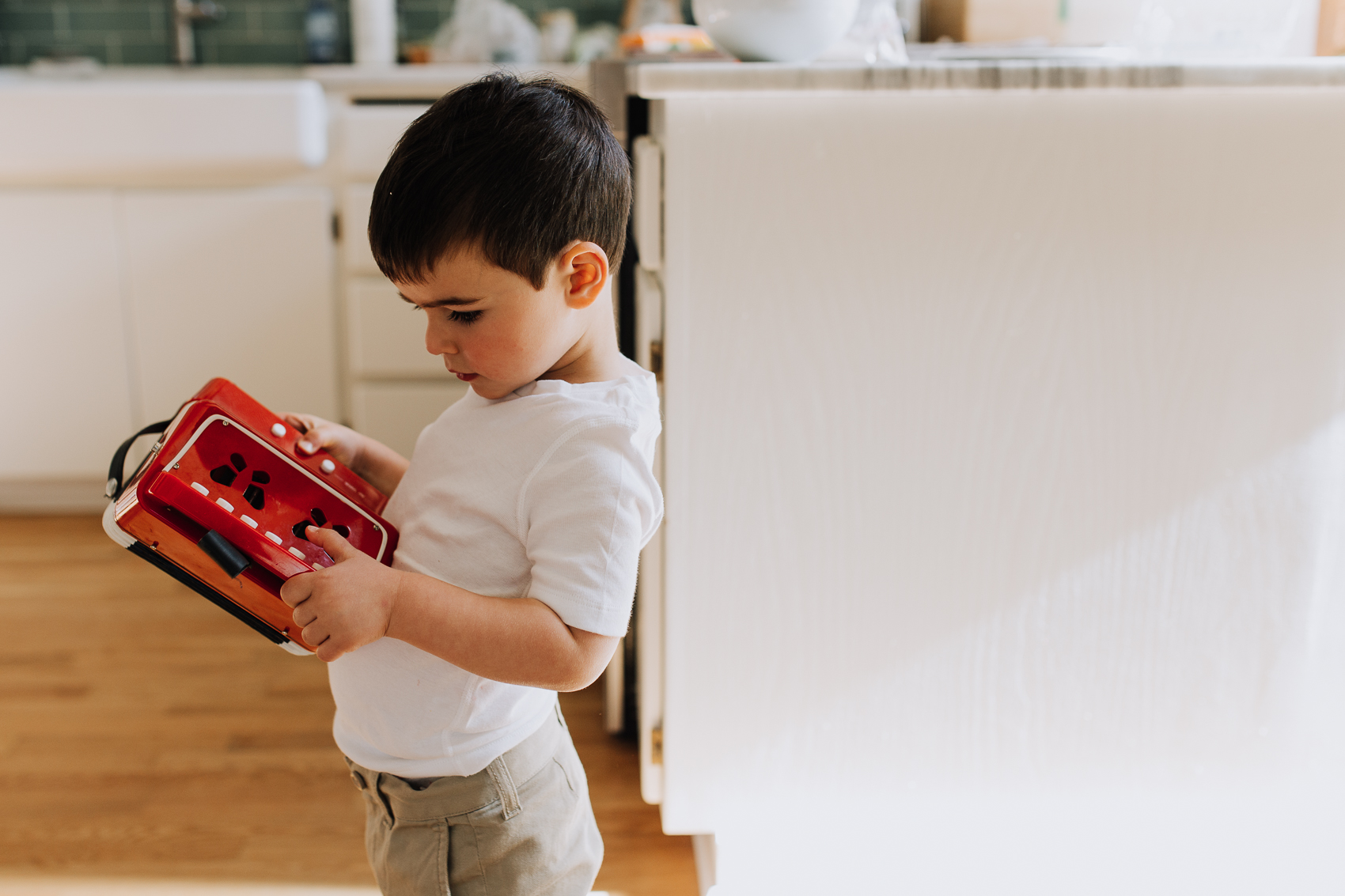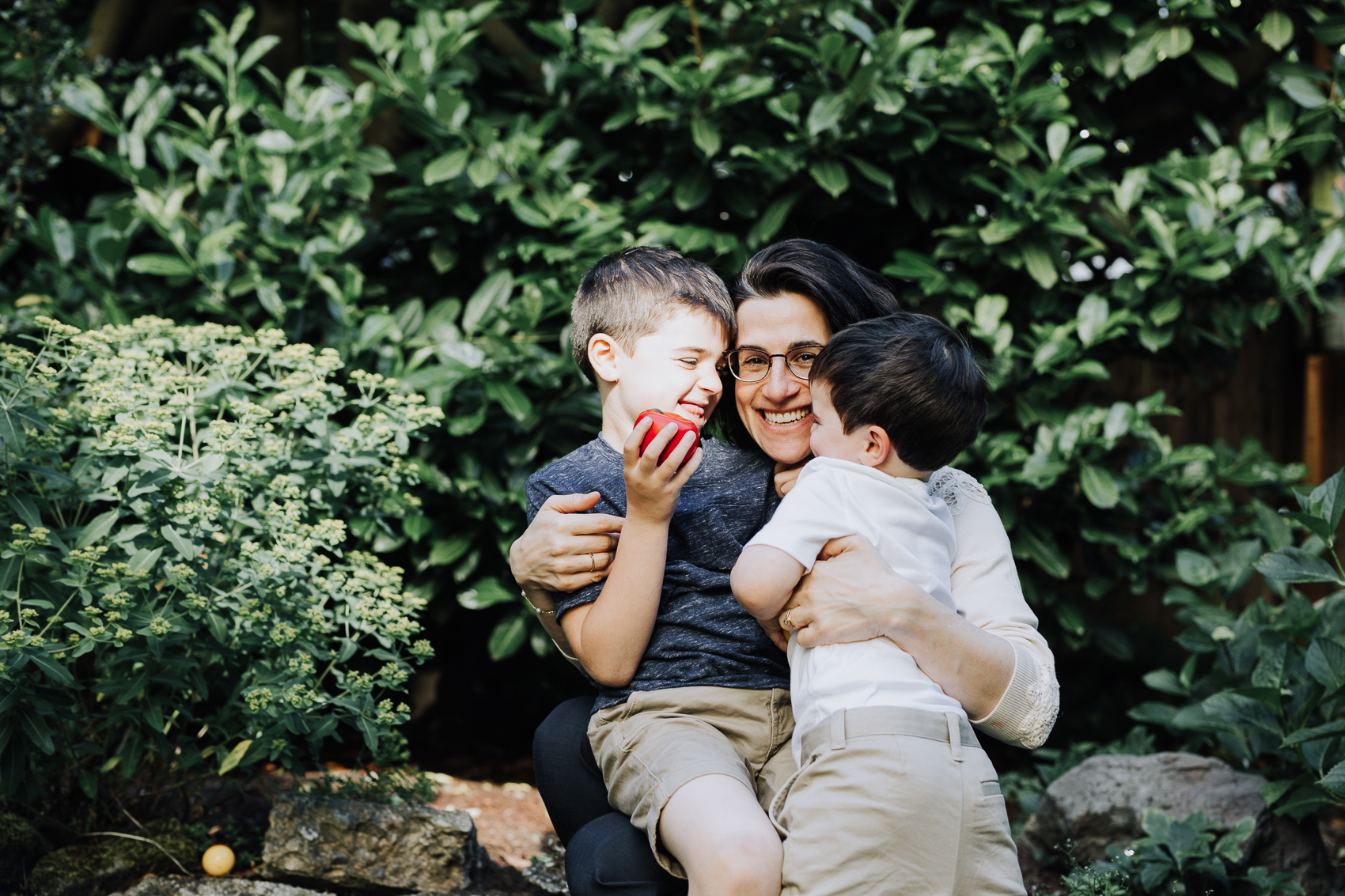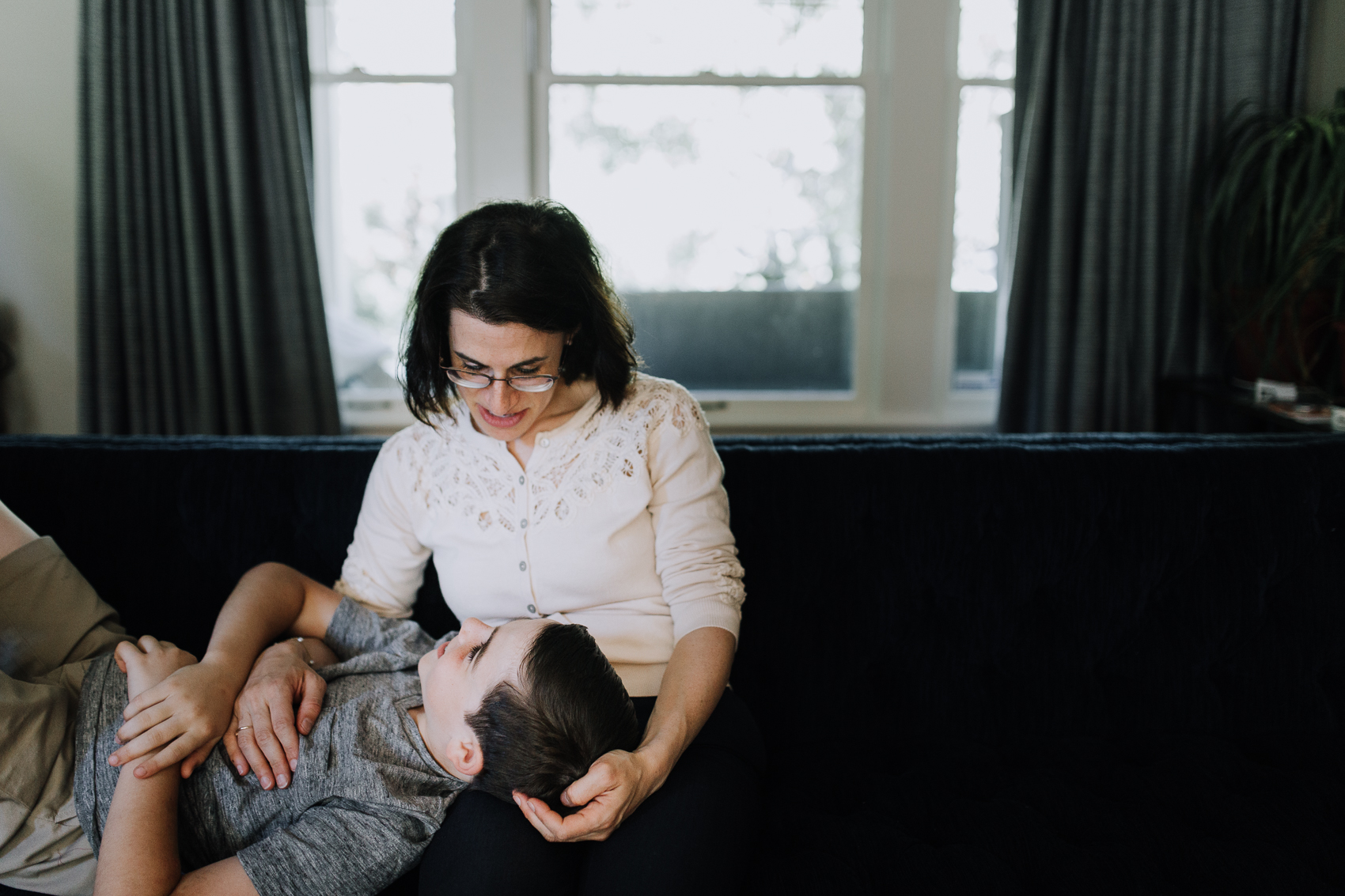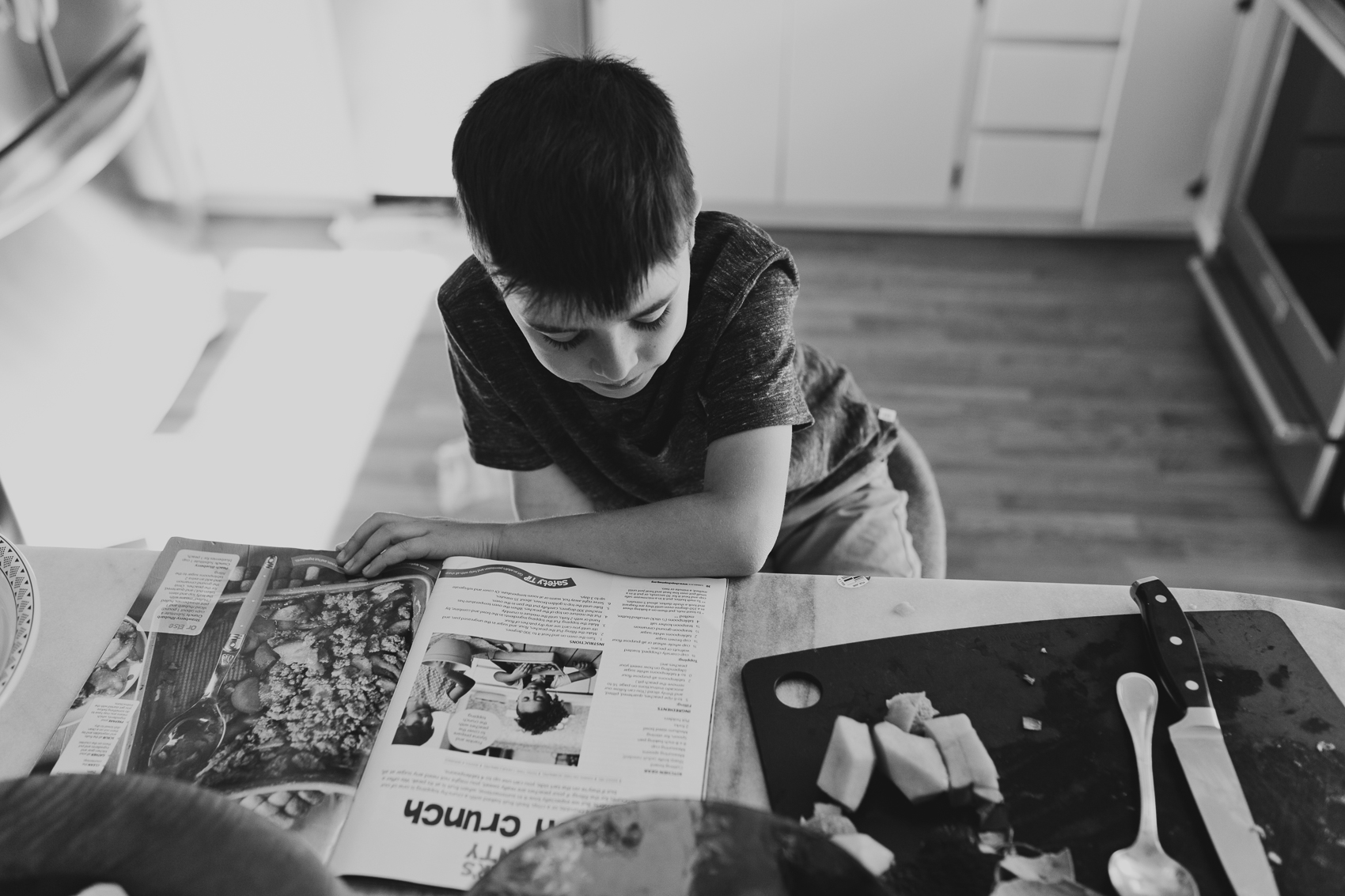Parenting with Perspective is a blog series featuring working Seattle mothers, highlighting the way their career, personal interests and experiences, extended family, spiritual practices, fostering, gender, and culture shape the lives of their families. The aim of the series is to feature local parents and build a community, but also, in a very very modest way, to do that without portraying mothers as single-mindedly focused on constituting themselves as a certain one kind of person (as social media often seems to do). I focus largely on parents who are either running their own business or work in academia because juggling parenting and work when there are no clear boundaries imposed by fixed work schedules is familiar to me. In the future, this might change.
Get in touch if you'd like to be featured!
I met Rachel at her home on a weekday after work / school. The boys were playing music and making a peach crisp to take to a block party as we chatted about their impending travel to Europe and Israel and raising bicultural / bilingual kids.
Tell me about your family.
My husband Lev and I have three boys, J aged 11, E aged 8, and N aged 3. Lev is a physician-scientist specializing in hematology, and I am a historian specializing in fashion, dress, and textiles in early modern China.
What does work-life balance mean to you?
Work-life balance is tricky. Actually I think academia can be a great job for parents in being flexible. That flexibility was especially helpful in the baby stage – my first child was born just before I entered the PhD program at Oxford, my second halfway through the program, and had my third just after starting my first teaching job. Spreading them out like that worked well for us. The most difficult aspect of being an academic when the kids were young was the travel – the conferences and especially research travel. It was really tough to take a month or even a couple of weeks to travel to China when the boys were infants and toddlers. I would love to take the kids to China, and you could definitely do that with one or even two, but three is a little challenging! And actually that is still a challenge – the ideal academic is someone with no responsibilities or family ties – whether that is an elderly parent, or a young child - to look after, which is why there are so many child-less / child-free women in the academy.
Of course three children is a lot of work. But a large chunk of the challenge is just time management and organization, which I find quite easy. For me what was critical was protecting the morning time when my brain works best for research and writing and tasks that actually take really focused thinking. In the evening after the boys would go to bed, I would do less onerous tasks like formatting or bibliography or marking or emailing. The down-side to that is there is no clear boundaries between work and home, but I guess many people’s lives are like that now – flexible work is both enabling and restricting.
I think it is hard to avoid feeling like you make compromises. I love being with my children, and I love my work, and both are infinite. As a mother, you could always be doing more playing, or reading, or going on excursions with your children. And as an academic, you could always be doing more research, or writing, or prepping lectures. The 21st century “perfect” mother is someone who is super-involved with her children’s lives and interests. She has a successful career, but she can still ferry her children around sports and after-school activities, AND make Instagram-worthy packed lunches every day. It is laughable but these kind of social norms surround us in insidious ways and it is hard to put them aside and find your own way of mothering. But I get enormous joy and satisfaction from being a mother, and after 11 years, I have a thicker skin regarding the pressure towards perfectionism in either realm – I don’t believe that women can have it all, any more than men can.
Extended family seems very important to you. How do you maintain those connections?
We relocated to the USA for Lev’s work, first for several years in Boston, and since last year, here in Seattle. So we are far from our parents, siblings, nieces and nephews in the United Kingdom and Israel. This is a big challenge for us and definitely the biggest drawback to living abroad. We are close to our family, and highly value the relationships the boys have with their grandparents, uncles and aunts, and cousins. So like many people, we spent a lot of time messaging and speaking on Skype, Facetime, and Whats-app. And all our disposable income goes on flights, so that we get to see our families at least once a year! For example, this summer, we went to Turkey for a close relative’s wedding, and then onto Israel where the older two boys did camp with their cousins, while Lev did some work trips in Europe, and I got some work on the book done in London while my parents looked after our youngest. That itinerary was unusual in involving so many different countries, but our priority is to allow the boys to spend a good chunk of the summer with their family. That means they flew as unaccompanied minors and did a camp in a foreign language, neither of which is ideal or easy, but the family time makes those challenges worthwhile.
How has raising kids bilingual worked in your family?
Lev is a native Russian speaker, he grew up in Siberia, and emigrated to the UK in his early 20s. His brother and sister-in-law speak English fluently, but his parents don’t, so we always knew that our boys would need to speak Russian to be able to have a relationship with their grandparents. We raised the boys bilingual by having Lev only speak Russian to them, and me only speak English to them. I studied a little Russian, and though it is getting a little rusty (taking lessons again is on my to-do-list!), I can understand enough so that our family conversations can go back and forth between the two languages. There were challenges in the beginning – for example, my parents found it hard that they didn’t understand what Lev was saying to the boys. Still on the whole it has worked well for us, we have been lucky that the boys have always replied to Lev in Russian, I know that for many families as the kids get older, they start replying in English. What I have learned is that children’s language is incredibly fluid – a summer spent immersed in one language will often have a short-term detrimental effect on the other; one child was struggling to find the right words one year, the next he was more fluent. I have also learned that true bilingualism takes a lot of work! Since we live in an English-speaking country, and I am at home with the boys more than Lev, we found that balancing the input with Russian-speaking babysitters and films and music was critical. And as the boys get older, I find the conversations are getting more complicated and challenging – I wish I had more time for studying. But really, when we see the boys chattering away in Russian with their cousins and grandparents, that makes it all worth it.
What is at the forefront of your mind when you reflect on raising boys?
Many of our hopes for the boys are not gender-specific - we want them to be respectful of each other and those around them, to have their own aspirations and dreams, to be determined and resilient in the face of challenges, to be excited about the world and making a contribution to their communities. At their current ages, they love being with us and asking a million questions a day, but as they get older and enter the teenage years, we hope they continue to talk to us occasionally! More boy specific is wanting them to see both Lev and I sharing in household tasks. Marriage is, amongst other things, about finding a labor division satisfactory to both partners, and everyone has their own way of doing that. But generally, I want them to grow up thinking of housework – the tasks involved in maintaining a clean and functioning house - as the job of everyone, not just the mother.
What are some things you like to do in Seattle with your boys?
Music is really important to us. Lev plays the piano and the older two boys learn instruments (piano and oboe, and cello). They are now old enough to be able to come to concerts with us, and we love the Meany Center for Performing Arts, and the Seattle Opera. We also love to go to the local and national parks. The boys are at their happiest when they are outside, and Washington’s national parks and mountains have been a great way of making them feel happier about the move from Boston!
If you are interested in booking an in home lifestyle family session in Seattle area, documenting your everyday, get in touch!



